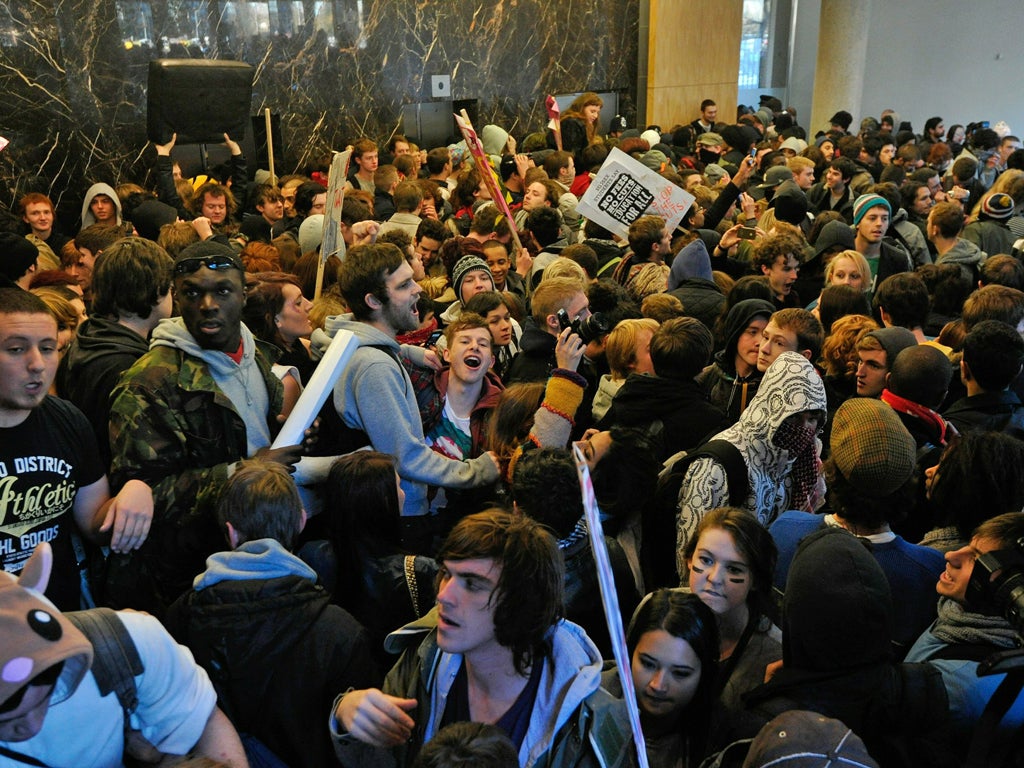The Iron Lady takes centre stage once again
A new generation of writers is tackling the Thatcher legacy

"As a portrait of Thatcherism... it feels about as reliable as an MP's expenses claim." The Independent's Anthony Quinn's verdict on The Iron Lady summed up the general sense of antipathy towards a film that hardly brushed Margaret Thatcher's seismic political legacy. Where film had its chance to define her and failed, it falls to a new generation of young theatre-makers to assess the legacy of a woman whose rule they weren't old enough to influence with their vote.
This year's Platform 18 award, an annual scheme run by Glasgow's Arches that allows two emergent theatre-makers to develop a show to production, has this year settled upon a pair of works that touch upon Thatcher's influence. "We've openly spoken about it as being an antidote to The Iron Lady," says Gary Gardiner, 32, writer, director and one of four performers in Thatcher's Children. "While the film had this vulnerable old woman looking back at her life and left us thinking 'ah well, she wasn't so bad', Thatcher's Children tries to get into the politics as something that's still alive."
Described as a combination of choreography, music, text and performance, Thatcher's Children will see the theatre arranged as if it were the House of Commons, with four present-day advocates of her neo-liberal ideals attempting to persuade us of them in sometimes ironic fashion. "It's very much about the idea that we're all Thatcher's Children," says Gardiner. "She radically reformed British politics to the point that we can't go backwards. The driver for public policy being economics is ingrained into our culture now.
"There's a quote, 'our society is now filled with the words of enterprise and innovation, but never has our society been more homogenous'. The real nub of this performance hangs on that principle. How society is obsessed by the idea of innovation, of being self-reliant and responsible, that everybody has the power to get themselves out of trouble and you shouldn't expect anyone else to do it for you. Thatcherism is a prop for us to explore that."
The idea of Thatcher as patriarch, says Gardiner, is also examined. "There are many people who appreciate somebody who makes absolute decisions," he says.
The other show, Kieran Hurley's BEATS, is about the post-Thatcher free party movement, a topic that it manages to link to the occupation of Millbank Tower last year. "Rave culture went beyond an individualistic, competitive, capitalist view of the world, that ideological attack on a world which might have room for things like solidarity or togetherness," says Hurley, 26. "I'm completely unable to divorce the free party movement from the context of post-Thatcher Britain, from the desire of an entire generation of young people to find a means, even via chemical assistance, of engendering some kind of collective empathy."
What makes the Thatcherite ideal so worthy of dramatic examination, suggests Gardiner, is not just the fact it's shaped every government since 1990, but that it's pervaded the lives of everyone, regardless of political persuasion. "I'm a freelance artist," he says, "so I have to present myself to the world as being an entrepreneur. I grew up in London in a very working-class family, and my dad benefited directly from the right-to-buy. The house he'd been renting his whole life is now worth quarter of a million pounds, so where do I sit within Thatcher's legacy? Am I an example of social enterprise rather than simply enterprise? I'm fully aware of the contradictions."
'Thatcher's Children' and 'BEATS', Arches, Glasgow (0141 565 1000) 18 to 22 April; Traverse Theatre, Edinburgh (0131 228 1404) 25 to 28 April
Join our commenting forum
Join thought-provoking conversations, follow other Independent readers and see their replies
Comments